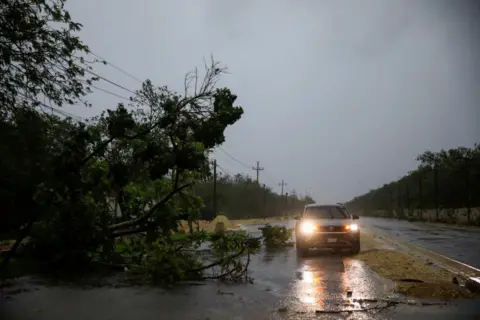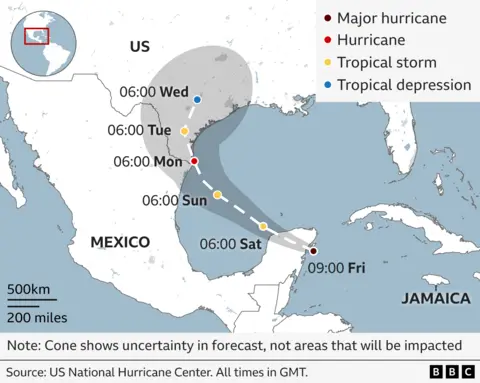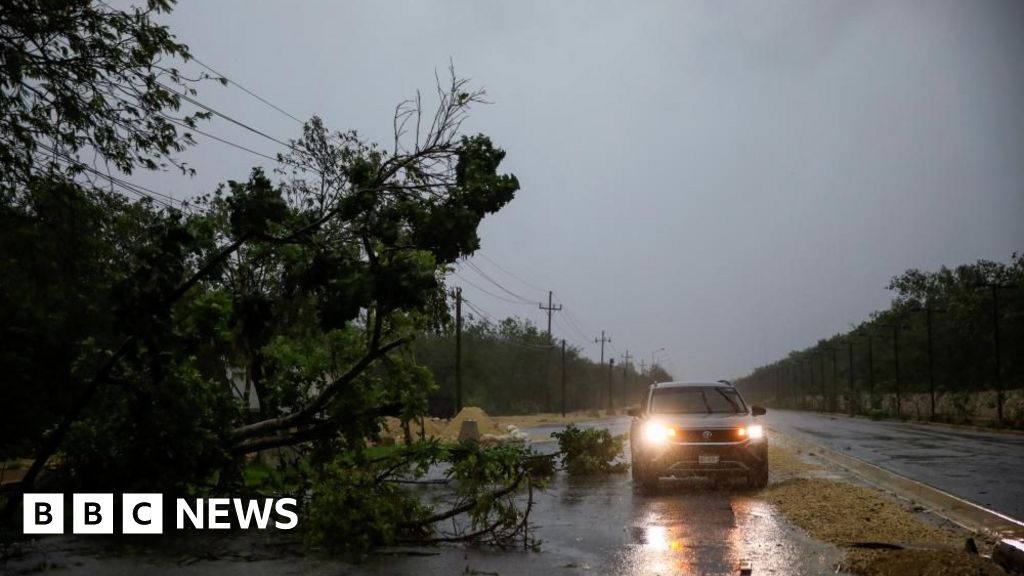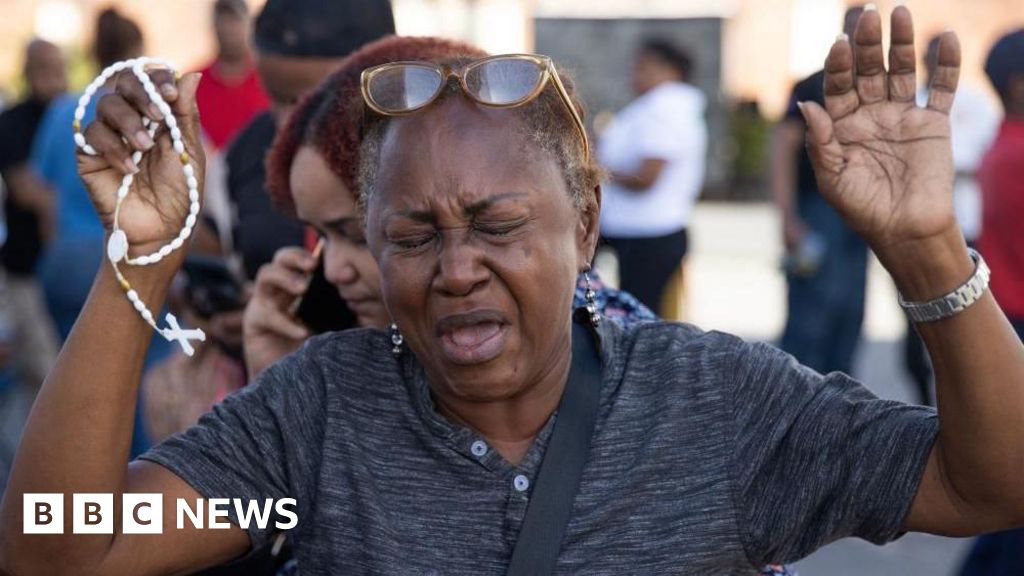By Ian Aikman, BBC News
A hurricane which has wreaked havoc across the Caribbean has hit Mexico’s Yucatán Peninsula.
Hurricane Beryl, currently classed as category one, lashed the region’s coastline on Friday morning, endangering two million people and the tourist hotspots of Cancún and Tulum.
Beaches are closed and thousands of troops have been deployed to help as the storm hits the country’s southeast shoreline.
The US National Hurricane Center (NHC) warned people in the area to shelter from the “life-threatening conditions” the hurricane will bring over the course of the day.
Across the Caribbean, at least 10 people are known to have died and more are missing, roofs have been torn from buildings, and thousands of homes were left without power.
 Reuters
ReutersMexican authorities have taken measures to prepare the coastline for the hurricane.
Schools have been closed, hotel windows have been boarded up, and emergency shelters have been set up in areas facing the brunt of the impact.
People in Cancún have rushed to supermarkets to stock up, with some encountering empty shelves.
More than 8,000 troops from the army, air force and national guard have been deployed in the Yucatán Peninsula to provide support.
Some were seen patrolling the beaches on Thursday, urging people to leave.
Mara Lazema, the governor of Quintana Roo state on the eastern part of the peninsula urged residents to “please stay home” in a video released overnight.
Hundreds of tourists have been evacuated from hotels across the coastline, and more than 3,000 people have fled from Holbox Island off the coast, according to local authorities.
More than 300 flights have been cancelled or delayed.
Stranded US tourist Anita Luis told Reuters news agency on Thursday: “We just want to go back home safely and pray the same for everybody else.”
Meanwhile, Virginia Rebollar, a Mexican tourist who travelled to Tulum, told AFP news agency: “They cancelled our flight and we had to pay for two extra nights.”
Hurricanes frequently occur near the peninsula, with the official storm season running from June to late November.
 Reuters
ReutersKing Charles III said he had been “profoundly saddened” by the destruction the hurricane had caused in the Caribbean, impacting several Commonwealth islands.
The Royal Navy has sent an aid ship to the Cayman Islands.
Hurricane Beryl battered Jamaica on Wednesday after causing huge devastation across other Caribbean nations.
The Red Cross said its teams had witnessed the life-threatening impact of Beryl’s rains first-hand.
“The severity of the damages in the aftermath of the hurricane is tangible and heartbreaking,” Rhea Pierre, a Red Cross disaster manager in the Caribbean, told reporters via video link from Trinidad and Tobago.
 Getty Images
Getty ImagesAs well as leaving a trail of destruction in its wake, Hurricane Beryl has also broken records.
Though was classed as a category two hurricane on Friday, it has previously been classed higher.
It is the first hurricane to reach the category four level in June since NHC records began and the earliest to hit category five – the highest category – in July.
Hurricane Beryl’s record-breaking nature has put the role of climate change in the spotlight.
The causes of individual storms are complex, making it difficult to fully attribute specific cases to climate change.
But exceptionally high sea surface temperatures are seen as a key reason why Hurricane Beryl has been so powerful.
Where will Hurricane Beryl go next?
Beryl weakened over land and is expected to be downgraded to a tropical storm.
The storm will then travel over the Gulf of Mexico, moving towards north-eastern Mexico and southern Texas by the end of the weekend.
By the time it makes landfall again on Sunday evening, the storm is expected to have strengthened back to a hurricane.
Texas Governor Greg Abbott told people near the state’s Gulf coast to “have an emergency plan to take care of yourself and your loved ones”.
The US National Oceanic and Atmospheric Administration has warned that the North Atlantic could get as many as seven major hurricanes this year – up from an average of three in a season.





















Discussion about this post